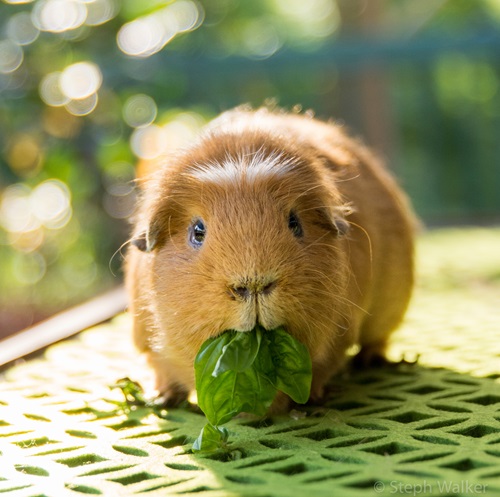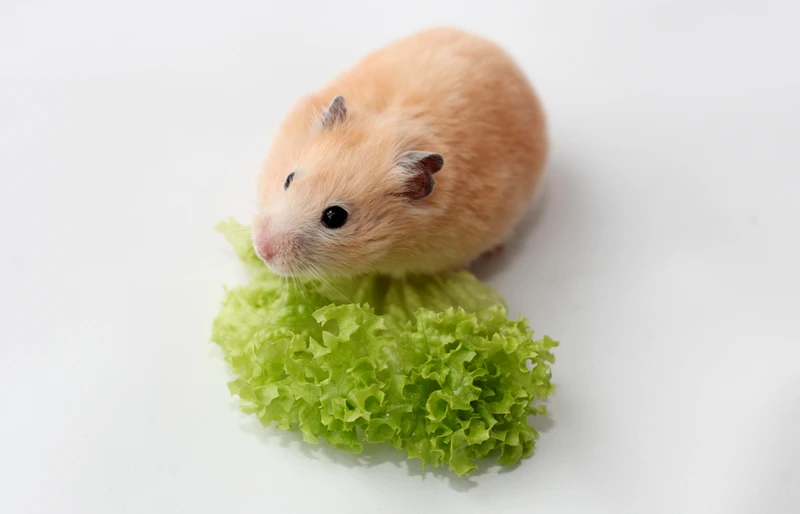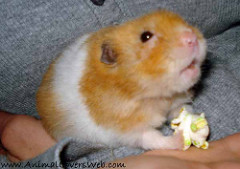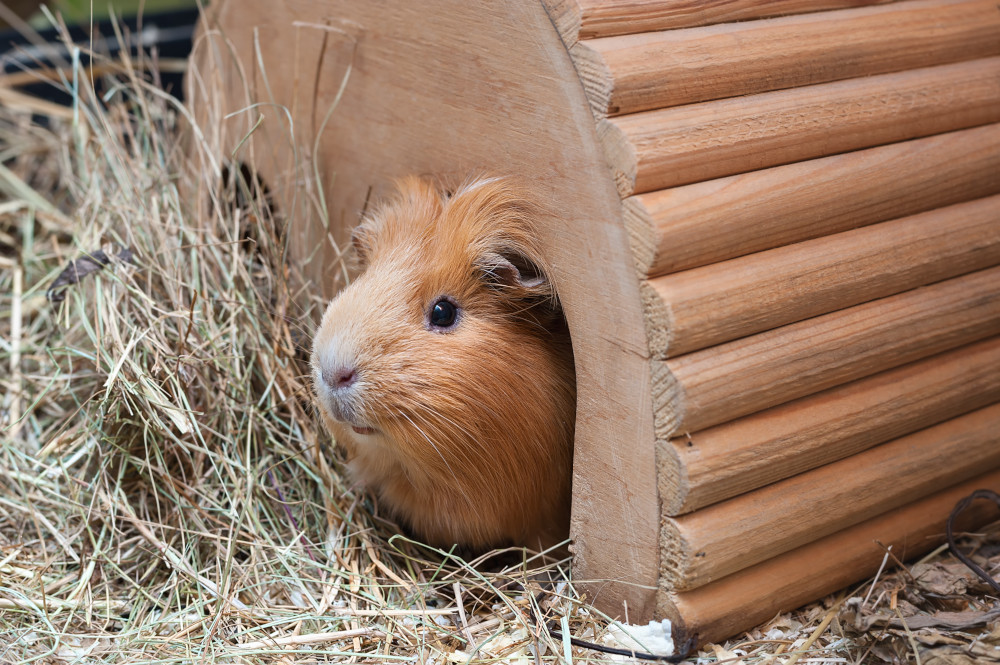When it comes to taking care of our furry friends, we want to make sure they have a balanced and nutritious diet. As hamster owners, we often wonder if we can give our little ones popular human foods like zucchini. While this summer squash may be a staple in our own diets, we need to consider if it is safe for our hamsters to eat as well.
There are differing opinions on whether hamsters can consume zucchini, with some owners reporting that their hamsters love it while others caution against it. In this article, we will delve into the world of hamsters and zucchinis, exploring the potential benefits and risks of including this veggie in your hamster’s diet. We will cover the nutritional value of zucchini, its potential benefits and risks for hamsters, as well as how to safely introduce it to your hamster’s diet. By the end, you will have a better understanding of whether zucchini is a safe and beneficial addition to your hamster’s diet.
>> READ MORE:
- Can Hamsters Eat Bananas? A Guide to Safe Treats
- Can Hamsters Have Bread? A Comprehensive Guide to Feeding Your Furry Friend
- Can Hamsters Eat Carrots? for Hamster Owners
- Can Hamsters Eat Cheese? A Comprehensive Guide
Nutritional Benefits of Zucchini for Hamsters

Zucchini, also known as courgette, is a popular summer squash that is low in calories and rich in nutrients. This versatile vegetable is often used in a variety of dishes, from grilled or sautéed as a side dish to spiralized as a healthy alternative to pasta. So, what exactly makes zucchini such a nutritious choice for both humans and hamsters?
A Treasure Trove of Goodness
One medium-sized zucchini (approximately 196 grams) contains the following nutrients:
| Nutrient | Amount per serving |
|---|---|
| Calories | 33 |
| Carbohydrates | 6 grams |
| Fiber | 2 grams |
| Protein | 2 grams |
| Fat | 0.6 grams |
| Vitamin C | 58% of the recommended daily intake (RDI) |
| Vitamin B6 | 14% of the RDI |
| Vitamin K | 9% of the RDI |
| Riboflavin | 7% of the RDI |
| Manganese | 10% of the RDI |
| Potassium | 8% of the RDI |
| Magnesium | 6% of the RDI |
As you can see, zucchini is a nutrient-dense vegetable, providing a good balance of vitamins, minerals, and fiber. Let’s take a closer look at some of the key nutrients found in zucchini and how they can benefit your hamster’s health.
Vitamins
Zucchini is rich in Vitamin C, a potent antioxidant that supports immune health and collagen production. This vitamin is essential for your hamster as it helps protect their cells from free radical damage and boosts their immune system. Additionally, Vitamin B6, also found in zucchini, plays a crucial role in maintaining a healthy nervous system and producing red blood cells.
Minerals
Zucchini also contains various minerals, including manganese, potassium, and magnesium. Manganese helps with bone formation and metabolism, while potassium helps regulate fluid balance and nerve signals in the body. Magnesium is essential for muscle and nerve function, as well as bone health.
Fiber
Fiber is necessary for healthy digestion and bowel movements in both humans and animals. Zucchini is an excellent source of dietary fiber, which can help prevent constipation and other digestive issues in your hamster.
Low Calorie and High Water Content
One of the great things about zucchini is that it is low in calories but high in water content. This means your hamster can enjoy zucchini as a treat without consuming too many calories and potentially becoming overweight. The high water content can also help keep your hamster hydrated, which is crucial for their overall health.
How to Feed Zucchini to Your Hamster Safely

As with any new food you introduce to your hamster’s diet, it is essential to do so gradually and in moderation. Zucchini is no exception. Here are some tips on how to safely feed zucchini to your furry friend:
Introduce It Slowly
When introducing a new food to your hamster, always do so gradually. Start by offering small amounts of zucchini as a treat, mixed with their regular food. Observe how they react to it and if it causes any digestive issues. If your hamster seems to enjoy the zucchini and tolerate it well, you can slowly increase the amount over time.
Wash and Cut It Properly
Always make sure to wash and cut your zucchini properly before giving it to your hamster. Wash it thoroughly to remove any dirt or pesticides, and cut it into bite-sized pieces that are easy for your hamster to eat and digest.
Serve It at Room Temperature
Hamsters have sensitive digestive systems, so it is essential to serve zucchini at room temperature. Cold or frozen zucchini could cause stomach upset and discomfort for your hamster.
Avoid Seasonings and Additives
It is best to serve zucchini to your hamster plain, without any seasonings or additives. These can be harmful to your hamster’s delicate digestive system and could potentially cause serious health problems.
Variety is Key
While zucchini can be a healthy addition to your hamster’s diet, it should not be the only fresh food they consume. Providing a variety of vegetables, fruits, and herbs will ensure that your hamster receives all the necessary nutrients for optimal health.
How Much Zucchini is Too Much?

As with any food, moderation is key when it comes to feeding zucchini to your hamster. While it may be tempting to give your furry friend as much zucchini as they want, overfeeding can lead to digestive issues and potential health problems. Here are some guidelines on how much zucchini is safe for your hamster:
Serving Size
As a general rule, the serving size of fresh vegetables for a hamster should be around the size of their head or smaller. For zucchini, this would equate to about one or two small slices, depending on the size of your hamster.
Frequency
It is recommended to offer fresh vegetables to your hamster 2-3 times a week, with a rotation of different veggies each time. This will ensure that your hamster receives a variety of nutrients and prevents them from becoming bored with their food.
Other Vegetables Hamsters Can Enjoy

While zucchini may be safe for hamsters, it is always good to have alternatives in case your furry friend does not take a liking to it. Here are some other vegetables your hamster can enjoy:
- Carrots: These root vegetables are rich in Vitamin A and beta-carotene and make a great treat for your hamster.
- Cucumbers: A hydrating and low-calorie option for your hamster, cucumbers are also a good source of Vitamin K and potassium.
- Broccoli: This cruciferous vegetable is packed with nutrients, including Vitamin C, fiber, and calcium, making it a healthy addition to your hamster’s diet.
- Bell peppers: These colorful and crunchy vegetables are an excellent source of Vitamin C and antioxidants, which support your hamster’s immune system.
Signs Your Hamster is Not Tolerating Zucchini

Every hamster is unique and may react differently to new foods. It is essential to keep an eye on your hamster after introducing zucchini into their diet and watch out for any signs of intolerance. Some signs that your hamster may not be tolerating zucchini well include:
- Diarrhea or loose stools
- Bloating or stomach discomfort
- Lack of appetite
- Unusual changes in behavior or activity levels
If you notice any of these signs, it is best to stop feeding your hamster zucchini and consult with a veterinarian if the symptoms persist.
Conclusion
In conclusion, zucchini can be a safe and healthy addition to your hamster’s diet when introduced slowly and in moderation. Its nutrient-rich profile and low-calorie content make it a nutritious treat for your furry friend. However, every hamster is unique, and some may not tolerate zucchini as well as others. Always monitor your hamster’s reaction to new foods and consult with a veterinarian if you have any concerns. Remember to offer a variety of fresh vegetables to ensure your hamster receives a balanced diet. With this knowledge, you can confidently add zucchini to your hamster’s menu and keep them happy, healthy, and well-fed.

